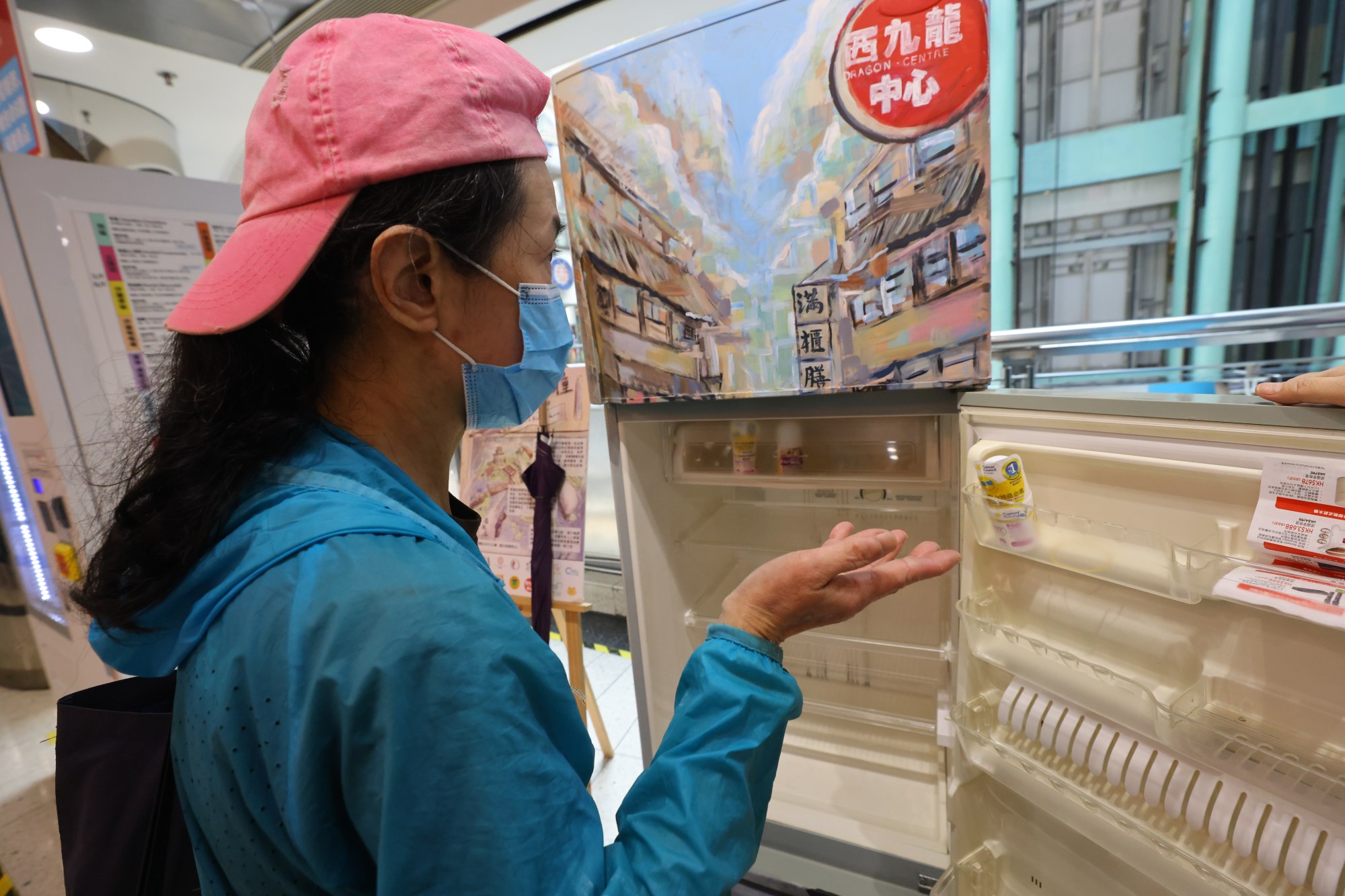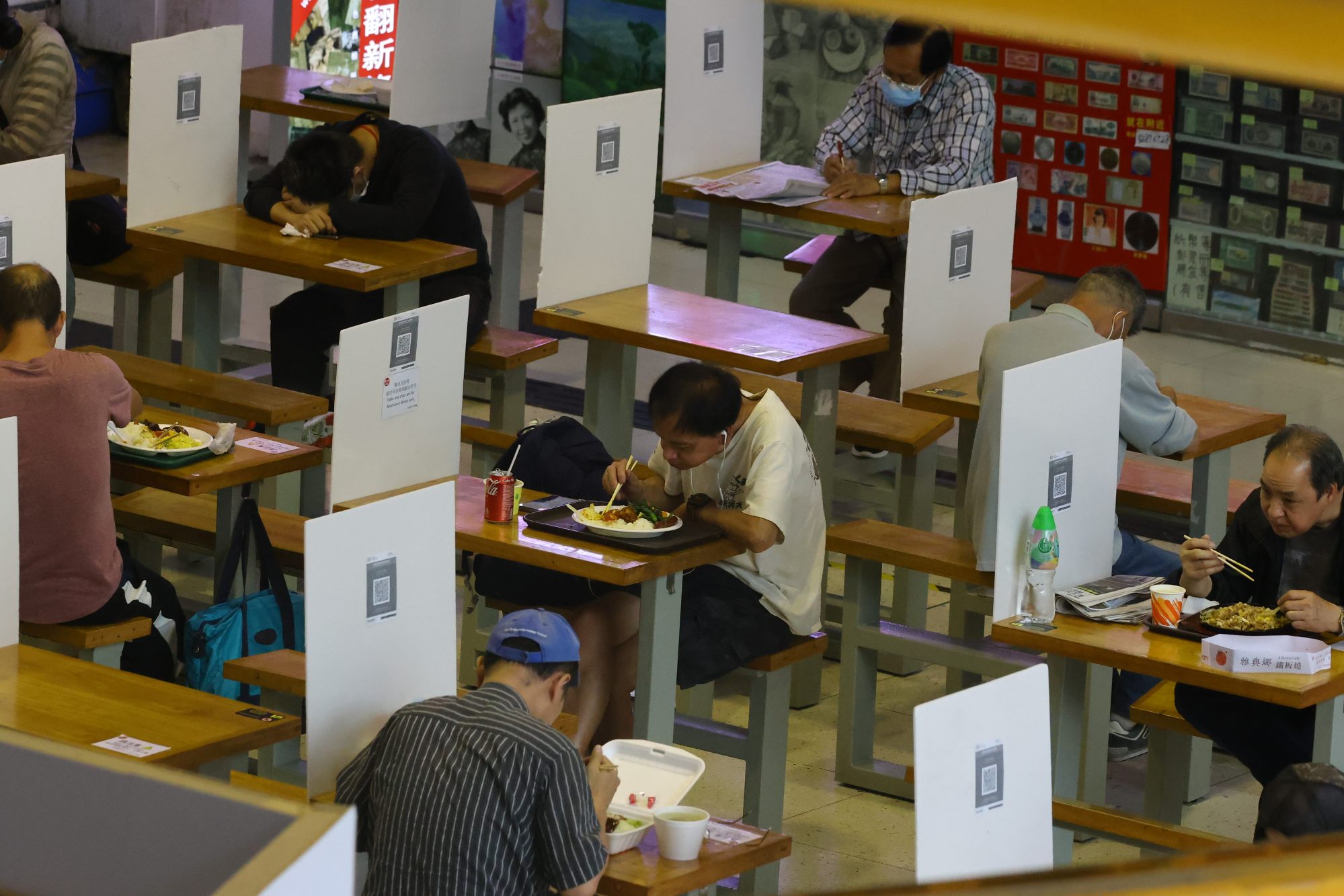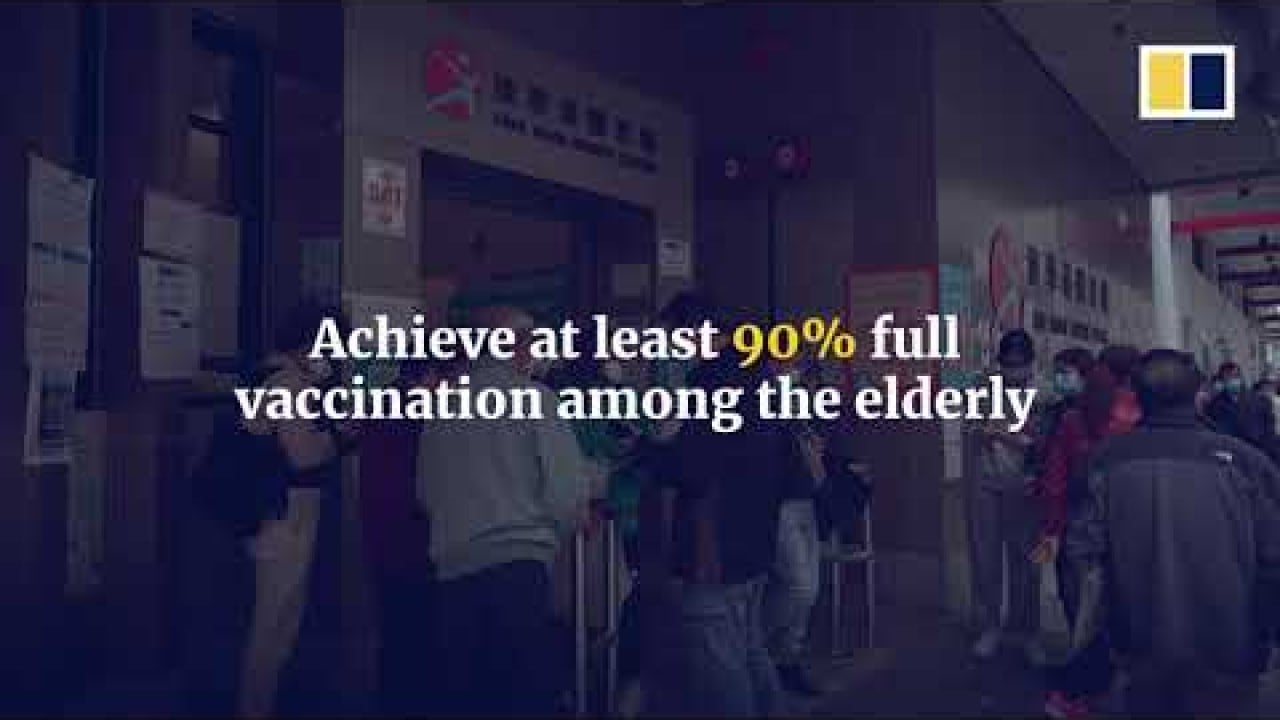
Covid and poverty: Hong Kong’s downtrodden survive on food court leftovers, seek out free meals from charities as pandemic takes its toll
- Some would rather not apply for social assistance, daunted by red tape and complex application procedures
- Charities say even people in their twenties who are on their last legs financially are among applicants seeking free meals
Cindy Chan, in her forties and donning a tattered and stained face mask, desperately sweeps items such as biscuits and canned food into her bag from a “Gift and Take” fridge at a food court in Dragon Centre shopping centre in Sham Shui Po.
The fridge offers donated dried food to the needy, and a scrawny Chan is among those who have quickly emptied it. The food court is one of her haunts where she scrapes morsels together to feed herself.
On some occasions, she would target leftovers from patrons, including at a nearby McDonald’s.
Chan is among Hong Kong’s poor and jobless who have fallen further through society’s cracks as a fifth Covid-19 wave rips through the city, with tough control measures bringing a wide range of businesses to their knees.
Charities and NGOs have reported a surge in demand for services such as free meals for the needy, and there have been younger applicants among those crying for help. Many have lost their livelihoods to tough social-distancing curbs.
“Some friends asked me why I have to live like this … I have no other way,” Chan told the Post, breaking down into tears. “I will look for something dry such as chips, chicken nuggets and bread from leftover food because they appear more hygienic.”

Chan, a former clerk, who suffers from rheumatoid arthritis and rash on her hands, has been jobless for two years since the pandemic emerged.
She survives on HK$2,000 disability allowance monthly, and has sought employment but to no avail. She now gets by doing casual jobs.
Showing her battered hands, she said in dismay: “Many people call me ugly and old. With a pair of hands like this, many don’t want to hire me.
“I can’t be a waitress as my rash will scare patrons. Nor can I work as a delivery worker as my condition is not suitable for exposure to the sun.”
Government figures showed more than one in five Hongkongers, or 1.65 million people, were living in poverty in 2020, the most since record-keeping began 12 years ago.
A spokesman for the Social Welfare Department said it had commissioned NGOs to operate a short-term citywide food assistance service to provide food for the needy for up to eight weeks, and which could be extended for another eight.
In 2020, there were 19,438 people applying for the service, a rise of 48 per cent from 13,142 in 2019. The number surged to 21,987 last year, up 13.1 per cent compared with 2020. The government also allocated an additional HK$212 million (US$27 million) in 2020-21 to cater to the increased demand for the service.
Two-thirds of Hong Kong poor families report losing one job to pandemic: poll
City leader Carrie Lam Cheng Yuet-ngor had warned that Hong Kong’s unemployment rate would continue to worsen after it bounced back to a five-month high of 4.5 per cent between December and February, from 3.9 per cent between November and January. There were 157,900 people out of work in the latest period.
On Friday the government rolled out HK$31 billion in wage subsidies for employers, and HK$3 billion in handouts for the unemployed during the outbreak.
Chan had once tried approaching NGOs for free lunchboxes, but those she contacted turned her down saying they only gave out free meals to the elderly, according to her.
Park, 52, who only gave his surname and runs a Korean food stall at Dragon Centre, said he noticed there were some people seeking leftovers at the food court in the past two months as Covid-19 infections raged.
“They include a young man in his twenties and two or three elderly men. They come here every two or three days and appear to be starving,” he said.
“They look for leftovers, whatever type of food. The staff here just let them be.”

Willie Ng Chung-leung, founder of Shirley’s Heart Charity Foundation which has been distributing free lunchboxes to the needy in Yau Ma Tei and Mong Kok for the past two years, said he had come across some 40 people scavenging for leftovers from rubbish bins on the streets and at various food courts.
He has offered free meals to them, hoping to restore some dignity to the downtrodden.
“There are young and old among them. Some have mental illnesses or emotional problems while others are street-sleepers or jobless with a chronic condition,” he said.
Ng added they were all reluctant to apply for social welfare for various reasons, such as being daunted by red tape and complex application procedures.
He noted a 20 per cent rise in demand for his lunchbox distributions, which involves handing out 4,000 packed meals monthly to people such as the elderly, members of ethnic minority groups, street-sleepers and others living on scraps.
“My mission is to fill the stomachs of the needy based on humanitarian grounds,” he said. “I did refer them to other relevant organisations to follow up on their conditions but their other problems are beyond my ability to fix.”
A spokeswoman for Food Angel, a food rescue and assistance programme by Bo Charity Foundation, said within a week after Lunar New Year in February, there were a staggering 6,000 applicants applying for its automated food dispenser service, part of the Jockey Club Food Assistance Programme.
“There is surging demand. The number of applicants within that week outstripped the 5,000 applicants accumulated in the past. We were shocked,” she said.
Under the scheme, approved users are given 45 coupons every month to collect cook-chill meals at automated food dispensers in various districts for up to a year. The service aims to relieve the financial burden on those affected by Covid-19.
“In the past, users were mainly the elderly. But in this new batch of applicants, there are youngsters in their twenties,” the spokeswoman said.
“Many of them became unemployed recently amid the business closures caused by stringent social-distancing curbs. They are on their last legs and have no other way but to resort to our service.”
Hong Kong poverty rate hits 12-year high in 2020, government figures show
Chan Cheuk-ming, 70, owner of Pei Ho Counterparts, known for offering free meal boxes to the underprivileged in Sham Shui Po, said those who live on leftover food could register at Dragon Centre and once their jobless status was verified, he would offer them two free meals daily.
Nicknamed “Ming Gor”, and distributing some 2,000 free meals monthly, Chan said as long as people were in need and registered with an NGO, he would not hesitate to offer help. “As long as they turn to us … we won’t turn them down.”
The Social Welfare Department spokesman said service users with long-term welfare needs would be referred to appropriate units for help.
“The department will keep in mind the economic situation and review the operation of the service,” he said.


